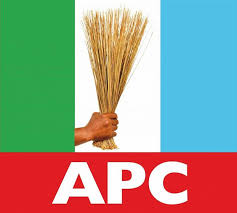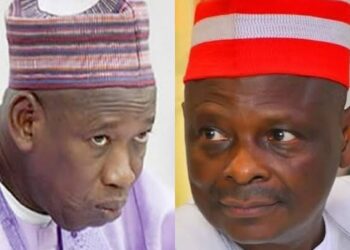Recently, 29 Southern Kaduna ethnic groups unveiled a Peace Apology Billboard in Samaru-Kataf, to pacify each other, in a bid to end the killings and orgy of violence visited by residents on their neighbours. ABDULRAHEEM AODU, reports that the Plateau state example, as enumerated by Gbong Gwom Jos, could bring lasting peace to the troubled communities.
Successive governments in Kaduna state have battled with the killings and reprisal attacks that have engulfed Southern Kaduna, since the 2011 sectarian crises, without clearcut success.
Following his assumption of office in May 2015, Governor Nasir el-Rufai, in a bid to find lasting solution to the communal clashes in the area, set up the Gen. Martin Luther Agwai (rtd) Peace and Reconciliation Committee in July 2015 to investigate the remote and immediate causes of the clashes and proffer solutions that would enable the people live in peace and harmony.
The committee made several recommendations in its report submitted in August last year, which government started working on and the killings abated for almost a year, before it erupted again in May 2016 with killings and reprisal attacks in Godogodo chiefdom. The crises have since crept to Kaninkon in Jema’a lga and Chawai in Kauru lga.
Despite living together in peace and harmony for over 50 years and in some cases over 100-200 years, Southern Kaduna farmers and Fulani herdsmen have turned against each other killing their neghbours and destroying their animals, farm produces and properties. Reasons suggested by political analysts for this renewed violence range from reactivation of the grazing reserves in the region, farmers-herdsmen clashes, presence of nickel and tantalite in the zone to banditry.
The killings seemed to defy any logic be it ethnic, religious or even sectarian. However, recent events are pointing towards a roadmap that has the potential of leading to peace, if all stakeholders will join hands to make it work.
Centre for Humanitarian Dialogue (HD), a Switzerland-based organisation that has helped restore peace in Jos and Plateau state, brokered peace, bringing all aggrieved parties to a roundtable to sign the Kafanchan peace accord. This culminated in the unveiling of the Peace Apology Billboard by 29 Southern Kaduna ethnicities represented in the roundtable discussion for peace and harmonious coexistence.
In between the two events, Major General Adeniyi Oyebade, the General Officer Commanding 1 Mechanised Division of the Nigeria Army, was able to bring aggrieved Fulani herdsmen and Southern Kaduna farmers to Kachia, where they all met and agreed to shealth their swords and work towards lasting peace in the area.
Addressing the unveiling of the peace apology billboard, HD Senior Adviser and Lead Mediator, Alice Nderitu said their tool in bringing relative peace to Jos has been talking and dialogue, while urging Southern Kaduna people to adopt same system. We came two years ago to set up a process for people to speak, to dialogue with one another. We have been doing peace move in Jos from where we came here. I was in Rwanda and I see things that most of you didn’t see.
“We are not helpless in this, I had a similar experience. Hope is not enough, we need to do more, those who sign that declaration want to say something to their people. The Kafanchan peace development initiative consist of 32 chairs from 29 ethnic communities that took part in the dialogue. The 32 chairs should work with their local government to remove burnt debris from the roads and other major centres.”
Speaking during the unveiling of the peace apology billboard, the Gbong Gwom Jos, Da Jacob Gyang Buba called on residents of the area to take a cue from Jos, Plateau state situation in applying dialogue within their communities to find lasting peace. The monarch, who spoke passionately about how they were able to find peaceful coexistence with Fulani herdsmen again in Jos after several crisis, urged Southern Kaduna people to follow suit.
The Gbong Gwom noted that if the people of Southern Kaduna agreed that God created them together for a purpose and resolved to live together in peace, saboteurs and mischief makers will not be able to cause rancour between them again. He said his forefathers lived together peacefully with the Fulani leading to his father being given Fulani name, Buba, by a Fulani herdsman.
“My grandfather had a very intimate Fulani friend called Buba. So when they gave birth to my father, the Fulani man said this boy is my namesake and my father was named Buba. After that they never gave him any Berom name again and that is why I bear Buba. Today we suddenly cannot live together with them again because we have allowed a division which did not exist before now, we have to go back to the way our forefathers were living together with the Fulani to have lasting peace.
“We have had serious challenges in Plateau state that are very distasteful. Lives were lost, communities torn apart. Up till today there are some villages that are still vacant; the natives have not gone back to their villages but we thank God for the relative peace we are enjoying on the Plateau, for having used the Centre for Humanitarian Dialogue to help us in our search for peace.
“When the Centre for Humanitarian Dialogue came to Plateau over three years ago, they requested that we give them people from the communities to work with. In my mind, I said another talk shop. But today I thank God that we have the patience to allow the Centre work with our various communities for the relative peace we are enjoying today.
“Governor Simon Lalong upon assumption of office held serious discussions with the Berom community and the Fulani before asking for the representatives of the two groups to work with a committee that he wants to put in place so that they can dialogue and talk to themselves. He encouraged that nobody should shy away from the issues that are creating problems.
“The team sat together and came up with a very beautiful report that virtually tallied with the report that the Centre for Humanitarian Dialogue had packaged with very serious recommendations.
“I have seated here, two Ardos of Fulanis from Riyom and Gashis and a ward head; I have a Hausa man from Gindin Akwati who very recently participated in the selection to fill the vacant stools of the District Head of Gashis and the District Head of Riyom, a thing they have not done in ages. If not for dialogue and desire for peace they will not be able to do that.
“In the Gazette for the selection of district heads in Berom land, the head of Fulani is a kingmaker despite not being a historical indigene, because we stayed together for so long, it was the wisdom of the elders to let them have a sense of belonging. I met it there and we are working with that.
“If these old people could do this, why are we tearing ourselves apart? Why can’t we find common ground on which to rejoice in? It is indeed very sad. Maybe those in administrations should copy some of what is being done years back, and what brought peace in those days. Today none of us knows our neighbour, and by neighbour, I mean even the one living next to us. That is the extent to which distrust has crept into us.
“It should be embarrassing that a young lady from Kenya has gathered us here to talk peace. Look at her age. The passion with which she talks is so touching.
“Governor Nasir el-Rufai called and asked me, ‘is there any way you can come and share your experience with us?’ The desperation and the passion with which he was speaking was enough. I know he can be stubborn but I never thought he could be desperate about an issue in the manner he spoke to me about coming to help package peace in this part of Kaduna state, my neighbours.
“I’m certain and I’m sticking my neck to all of you that the Governor desires to work for peace in this part of the state. Distinguished Senator (Danjuma La’ah) said they are going to hold the Governor responsible for peace; I want to take that as an issue of language. Anybody who desires peace has to work for peace. Peace starts with each one of us as an individual right from one’s home to our neighborhoods.
“In the good days, nobody bothers about the religion of your neighbour. Anytime our mothers are going out, they just shout to the women next door, I am going to the market, the children are at home. And she will make sure those children are fed. We can see how society has degenerated. I want to appeal particularly to those of us in the traditional institutions; we have to find new methods of solving problems.
“I want to appeal to people that you are free to stay wherever you want in Nigeria but please follow the due process. Society that has no law and order will definitely have these kinds of problems. Each one of us must be responsible for peace. We must find a way of working together. We must sit down and talk about issues in truth and spirit and resolve them accordingly.
“Let’s call these various communities to talk to themselves in the presence of very serious minded people. Religious leaders in Nigeria today have taken it upon themselves as if they have a God-given privilege to say anything they want to say the moment they mount their pulpits or in the mosque. If we are truly religious people; both religions are religions of peace.
“For you to stay in peace with someone, you must know who that person is. So we need to understand each other and appreciate each other. When we were young people it was a thing of joy when Sallah came because meat will be all over the place. You will see young children sharing food all over the neighbourhood. It was the same during Christmas. Now we hardly know when Sallah comes just like we hardly know when Christmas comes and yet we want to relate with one another.
“Please there is nobody that is going to resolve this problem. We have to resolve our problems ourselves. We have to sit and talk to each other and appreciate where we made mistakes and correct those mistakes and stay together in the interest of peace. Next time it is our desire that when we come together, may be here, may be in another different venue, like Kafanchan, or Kagoro, Manchok or wherever, we should be gathering to celebrate peace,” Da Gyan Buba added.



